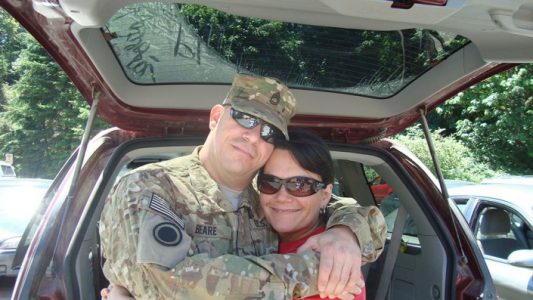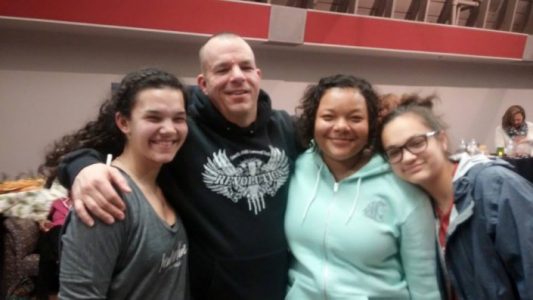MSSA grad begins post-military career at Amazon Web Services
When Sgt. 1st Class Robert Beare decided that after more than 20 years it was time to leave the Army, he knew he needed a plan. So the military intelligence analyst began formulating his next career move — more than two years before his separation date.
“I dedicated my entire adult life to the military, and I didn’t really know what to expect after I got out,” Beare says. “I had to make a decision. At first I figured I’d look for jobs as an analyst, but the entire time I was in the military I was doing computer stuff on my own, just as a personal interest. I decided that it was probably a wiser move for me to focus on the tech industry and started studying for some computer certifications.”

That’s when Beare heard about Microsoft Software & Systems Academy (MSSA). MSSA is an intensive 18-week course at multiple bases across the country that provides active duty U.S. service members with the career skills necessary to meet the IT industry’s high demand for talent.
“Everybody kinda knew that I was the computer guy, and they knew that I was starting to look at getting out, so a captain in my unit mentioned MSSA to me,” he says. “I had never heard of it, so I went to a briefing and said, ‘this is awesome,’ and that’s when I really started to finalize my plans and get my timetable set. I ended up pushing my separation date out by about eight months so I could attend MSSA.”
Having that plan in place, Beare says, helped calm his nerves about transitioning, and he began to get excited about what the future would hold — for him and his family. One of the main reasons Beare decided to leave the military was to spend more time with his family, and deciding on a path helped him envision what that time would look like. While attending MSSA, he took full advantage of the resources available, and really focused on honing his IT skills and building his resume.

“This is a program where you get out of it what you put into it,” Beare says. “I had access to Microsoft labs and software I wouldn’t normally have access to, so I took advantage of it. And what Microsoft provided — mentorship and assistance with resumes, LinkedIn and networking — that was fantastic.”
In addition to the tech skills and mentoring, MSSA exposed Beare and his classmates to recruiters and job fairs on a regular basis. Though Microsoft is working to hire one-quarter of MSSA grads, it also wants to ensure that all grads find a rewarding career in tech. Microsoft partners with several companies in the IT industry to help MSSA grads find their fit. It was at one of those recruitment days that Beare first heard about jobs at Amazon. An Amazon recruiter and some co-workers, all former military and one MSSA graduate, spoke to the class about jobs at Amazon Web Services for former service members. Beare liked what he heard and, a couple weeks later, he found the Amazon booth at a job fair he was attending and submitted his resume. After a series of interviews, the job was his. Beare began work as a cloud support associate for Amazon Web Services in early January 2016.
“I’m loving it here,” he says. “My position is kind of like an engineer in training, so I get exposure, but I also get direct mentorship and training on a daily basis. It’s very well structured and it’s extremely effective. I’ve learned incredible amounts so far.”

And, Beare says, the military community at Amazon is incredibly strong. Not only does he work directly with several former service members, Amazon has an internal interest group called Amazon Warriors, which is made up of former service members.
All in all, Beare’s experience transitioning out of the Army after 23 years was a positive one. But that wasn’t due to luck, he says. The key is to be proactive and work for what you want. Once you have direction and you know what your end state is going to be, you can map out a course to get there.
“Decide what you want to do, commit to it and develop a course of action to follow,” he says. “I decided I wanted to work in IT, so my course of action was to get a couple computer certifications, go through the MSSA program and, on the weekends, instead of going out drinking with my buddies, I went home and studied. Really take planning for your future as a job. Look at it that way and take it every bit as seriously. That’s what really helped me through the transition.”
